Mechanical Failure
There are times when life just cracks you open, aren't there?
I usually feel almost like a robot, but not in a bad sense at all. Rather, I love that I'm highly regulated and capable of keeping up routines. I work like crazy, then squeeze in some exercise, and then get right back to work, capping off a full day with taped episodes of the The Big Bang Theory (where I enjoy watching someone even more mechanical than I). Despite being so controlled, I'm able to feel great joy (mostly thanks to kanji), so it seems that I have the best of both worlds.
Then there are weeks like this one where my psyche takes over and decides to make me pay attention to some long-repressed feelings, and control goes out the window. I suppose I'm far more of a human than I'd like to be! I'm really not crazy about that idea, but maybe I couldn't feel the joy o' kanji if I weren't able to feel anything at all. Now that I'm back on track and feeling good again, I can kind of almost somewhat sort of appreciate that things went all catawampus for seven days!
Anyway, I don't know if this heightened sensitivity also made me respond more to certain material in the newest essay, which is on 舟 (small boat; "boat" radical), but several parts of it struck me on a deep level—even synopses of stories (which often leave me cold). I've shared three below, and all feel achingly powerful to the point of being haunting. The fourth passage below is about a pontoon bridge, an innovation (if you can call a very old and universal idea "innovative"!) that I knew nothing about and that filled me with wonderment at human ingenuity. My husband felt the same way when I showed him a picture of such a bridge, and he engaged deeply with the tale of the rabbit just below, so I don't think my responses are simply a reflection of an off-kilter psyche. Rather, there are things in the world that are going to affect you, no matter how much of an automaton you try to be!
See what you think!
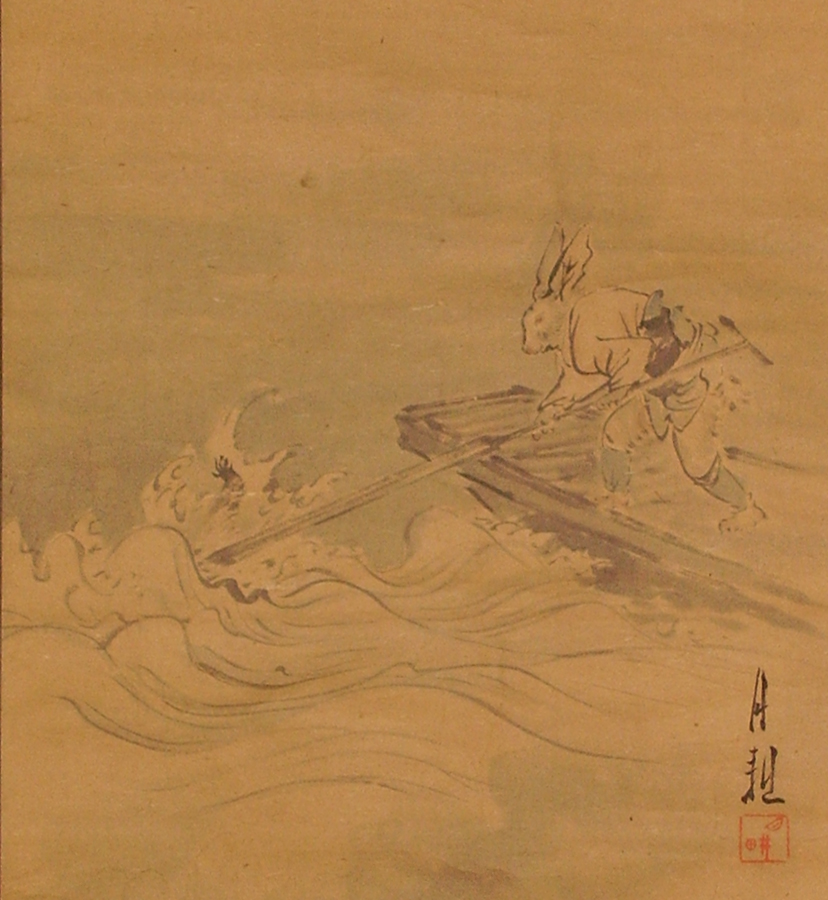
Photo Credit: User:Lx_121
The second meaning of the following term came from a fairytale:
泥舟 (どろぶね: (1) boat to transport mud; (2) (fictional) boat made of (dried) mud)
mud + boat
The story, which originated during the Muromachi period (1336–1573), is called 「かちかち山」, read as かちかちやま. It's about an old woman who helps a stranded tanuki (raccoon dog). No good deed goes unpunished; the tanuki kills her, makes a soup out of her flesh, transforms himself until he looks as she did when she was alive, and (pretending to be her) serves the soup to her widower. When the tanuki then reverts to his usual shape, the poor man finds out that his wife is dead—and that he has eaten her!
A rabbit who has been friendly with the couple decides to avenge the woman’s death. He tortures the tanuki in various ways. For instance, while the tanuki is carrying a heavy load of kindling on his back, the rabbit sets fire to the wood, badly burning the tanuki.
Eventually, the rabbit prepares two boats, a small one made of wood and a large one made of mud, and lures the tanuki away to fish at sea. The greedy tanuki takes the large one made of mud, which eventually dissolves and sinks.
The image here, which is from a Japanese painting circa 1890–1900 or so, shows the rabbit as he strikes the already-sinking tanuki with an oar and reveals his vendetta.
Other versions have different accounts of how the tanuki ended up with the mud boat. For instance, Wikipedia in English says that the tanuki was the one to challenge the rabbit to a boat race and that they each built their own boats; the rabbit made a dugout canoe while the tanuki foolishly created a boat out of mud. I find that storyline lacking; why would the tanuki do such a thing?
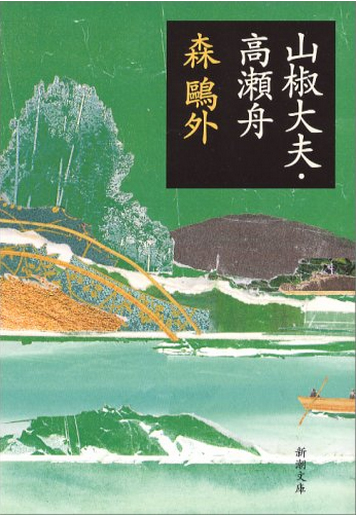
The author with the alias 森鴎外 (もり おうがい, 1862–1922, in which 鴎 is non-Joyo) wrote a famous short story with this word as the title:
高瀬舟 (たかせぶね: flatboat) name of a river (1st 2 kanji) + boat
Although that is the whole name of the story, it’s translated as “The Boat on the Takase River.”
As Wikipedia explains, a flatboat would carry criminals from Kyoto to Osaka during the Edo era. One criminal, Kisuke, was so cheerful that the police escort asked him why. Kisuke explained that his life had been so bad that his new life in exile could only be a step up. The government had paid him quite a bit to start this life in exile, and it was the most money he'd ever had.
Kisuke and his brother (who had been orphans since they were young) had been extremely poor. They worked into adulthood, but the younger brother became too sick to work, and debts mounted. Feeling like a burden to Kisuke, the younger brother tried to kill himself but didn’t succeed. In great pain, he asked Kisuke to finish the job, which he did. That was the crime that brought him to the flatboat, where life could only improve.
This story was made into a very short movie in 2010.
The word 高瀬 means “shallows of a river.” A flatboat is probably called a 高瀬舟 because it can go through very shallow water.
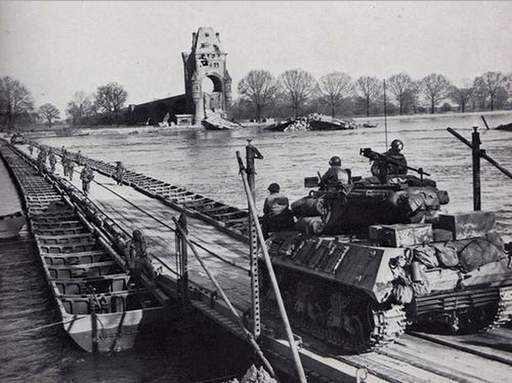
Photo Credit: Unknown photographer
The kind of bridge shown here is known as follows:
舟橋 (ふなはし: pontoon bridge) boat + bridge
Such a bridge consists of boats lined up side by side with boards across them. In this ingenious design, the boats support the bridge.
A pontoon bridge is usually temporary and comes into existence during wartime. (This one crossed the Rhine during World War II. I tried to find a Japanese example but couldn't.)
As it happens, 舟橋 is also the name of a barbershop (or bar bershop!) in Osaka:
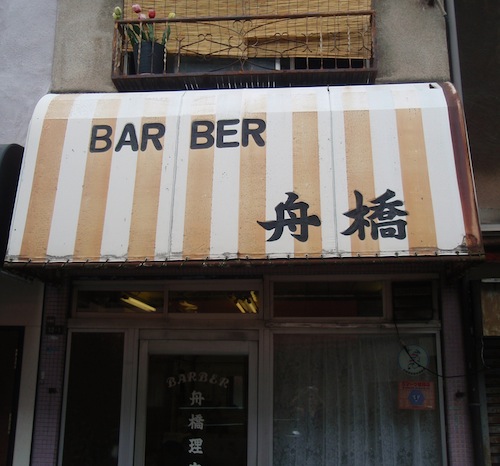
Photo Credit: Eve Kushner
One reads the name as ふなばし or ふなはし. But get this—because the shop is in Osaka, the yomi is probably ふなはし because the Kansai (western Honshu) region has less voicing in the names of people and places. I had no idea!
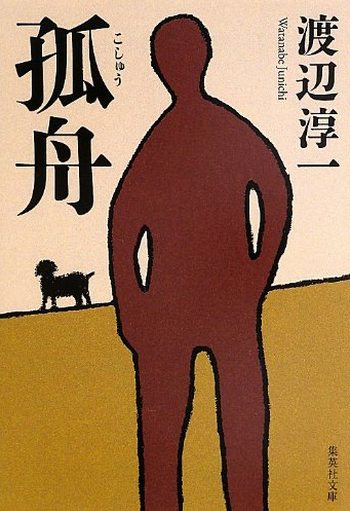
The title of this book consists of just one poetic-sounding word:
孤舟 (こしゅう: solitary boat) solitary + boat
For all the quietness of poetry and of the yomi こしゅう, this novel about a lonely retiree made quite a splash when it was published in 2009.
The protagonist used to be executive director of a large ad company, and he dreamed of all that he would be able to do after retiring: pursuing hobbies, spending time with his family, and studying whatever he wanted to study. It would be a second life for him. But as soon as he retires, his plan falls apart. The reality is that he has nothing to do. He just repeats unbearably long, idle days again and again. Furthermore, his wife finds it stressful that he is always home, and they clash about the smallest things.
The portrayal of this man’s fate struck a nerve in Japan, where many aging people feel anxious about how their impending retirements will turn them into “unmoored boats,” drifting without any purpose or connection to the rest of society.
So there you go. Did any of these tales strike you as harrowing and tragically universal in the way they capture the human experience? Or is it just me?!
Essay 1354 on 舟 is chock-full of information and photos, so you've seen only a sampling. Here's a sneak preview:
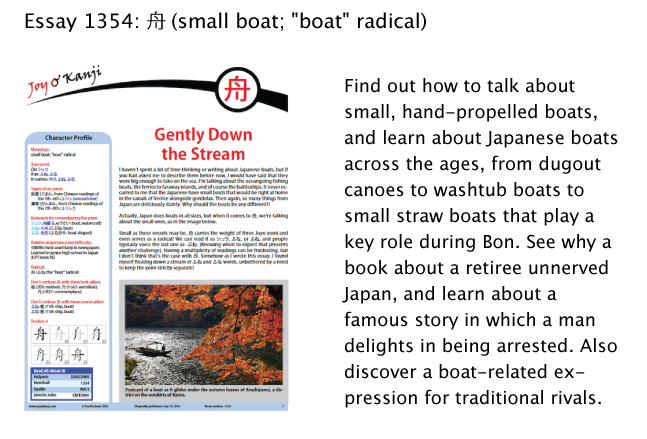
Have a great weekend! And here's to (dare I say?) smooth sailing in the week to come!

Comments